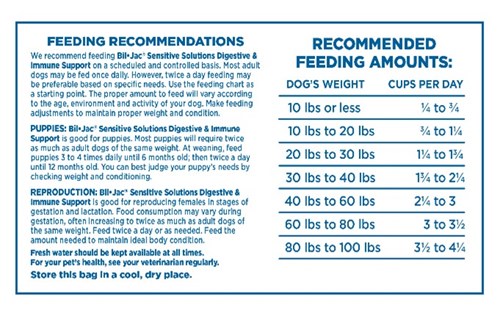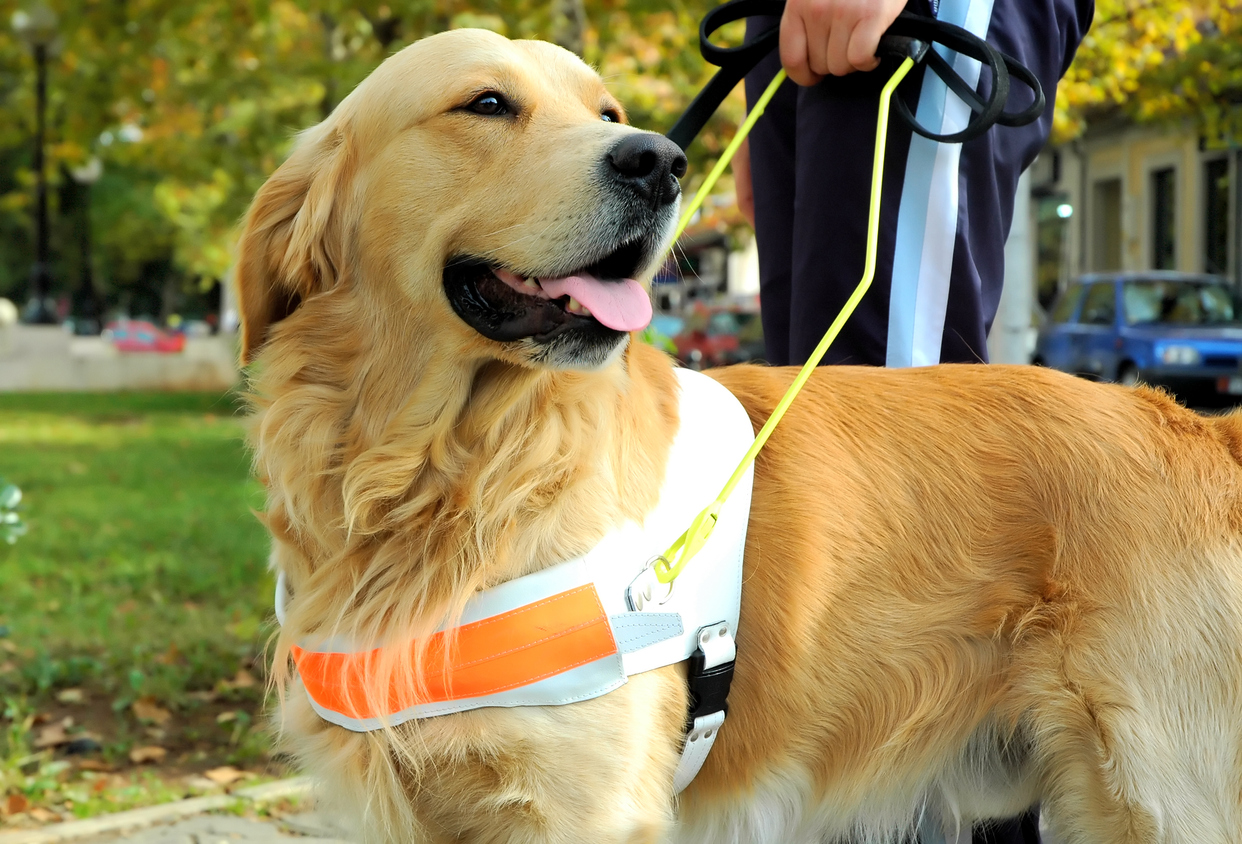Every day is an adventure after you bring a puppy home. There is so much to discover about your new furry friend, but it’s best not to make decisions on the fly when it comes to their nutrition. Being the caretaker of a growing puppy means you’ll want to do your research and be prepared so they will have everything they need to grow into a healthy and happy adult dog.
If you currently have a four-legged family member at home, it may cross your mind to feed your new pup the same dog food you’re already buying for your adult dog. After all, that would be a lot easier than having to get them their own puppy food – but can puppies eat adult dog food?
The short answer is no. Puppies shouldn’t eat adult dog food. Your new friend requires specific amounts of important nutrients like protein, amino acids, essential fatty acids, vitamins, and minerals to help them grow. Oftentimes, adult dog food will have all these ingredients in them, but not at the amounts needed for a growing pup.
What Is the Difference Between Puppy Food and Dog Food?
When it comes to mealtime, puppies and adult dogs have vastly different nutritional needs to stay happy, healthy, and energized. Puppies are going through a major transformation from adorable fluff-balls to full-grown fur-babies, so their food has higher levels of protein, calories, and essential nutrients for proper development.
Adult dogs, on the other paw, have different calorie and nutrient needs to maintain their weight and overall wellness once they’ve stopped growing. Their food is formulated with the right balance of nutrients for a healthy lifestyle and the proper calorie amount to avoid unnecessary pounds.
Here’s a quick summary of the differences between puppy food and adult dog food and why puppies shouldn’t eat adult dog food:
- Puppy Food: Higher protein, more calories, extra nutrients for growth
- Adult Food: Lower calorie, specific nutrient ratios for support and maintenance
What is “Good” Dog Food for Puppies?
What exactly makes one dog food “good” and another one “bad” for your growing pup? You want to make sure the food you buy has everything your puppy needs to be healthy and that it is cooked in a way that will protect those key nutrients.
Learning how to read the nutritional label is an easy way to determine whether dog food is good for your puppy. This will help you understand if that specific brand or style of dog food is right for your pooch
How to Read a Dog Food Label
There is important information to look for when checking a dog food’s label.
- Guaranteed analysis
- List of ingredients
- Feeding recommendations
- Statement of nutritional adequacy
Guaranteed analysis
Many states have regulations requiring the minimum amount of nutrients a dog food must contain, as well as the maximum amount of moisture and crude fiber. A dog food’s guaranteed analysis breaks down that food’s nutrient composition. In the guaranteed analysis section of a dog food label, you will find what percentage of ingredients like crude protein, crude fat, and moisture are present in that product.
List of ingredients
The ingredients section of a dog food label will list every ingredient that went into the product in order of weight. Each ingredient must be listed to comply with the Association of American Feed Control Officials (AAFCO) strict labelling regulations.
When examining a list of ingredients, keep your eye out for the basic core components you want to see in your dog food.
- High-quality protein as the #1 ingredient to support lean muscles.
- Omega fatty acids for healthy skin and coat.
- Wholesome carbohydrates for energy and vitality.
- Gentle fiber blend to support healthy digestion.
- Vitamins and minerals to support a strong immune system.
Feeding recommendations
On a dog food label, the feeding recommendations offer a guide on how to use that product. Monitoring your puppy’s weight and measuring their food is important to having a healthy puppy. Feeding recommendations are a good starting point, but you should always monitor your puppy’s weight as they grow and adjust the amount of food depending on your puppy’s body condition.

Statement of nutritional adequacy
A Statement of nutritional adequacy indicates that a particular dog food meets the nutritional requirements for a particular life stage, such as growth, reproduction, adult maintenance, or a combination of these. This information is particularly helpful when evaluating whether a food meets your dog’s unique nutritional needs. When feeding a puppy, you’ll want to look for a statement that says the food is for either Growth or All Life Stages (which includes Puppies).

By analyzing a dog food’s label, you can start to get a better idea of whether that is a product you would want to give your best friend every day. Does it have high-quality ingredients? Was it made for puppies or adult dogs? Once you know the answer to questions like these, it is easier to narrow down your options.
How to Choose the Right Puppy Formula for Your Dog
When it is time to pick a puppy food, it is important to take your pup’s breed, size, and dietary needs into consideration.
Breed and Size
Large dog breeds – 50 pounds and up when fully grown – have different nutritional needs than small breeds. For instance, larger dogs are prone to muscle and joint concerns, so they often require a dog food with high protein and ingredients that promote musculoskeletal health, especially as puppies.
Small breeds – less than 20 pounds – have special dietary needs as well. Food pieces may be too big or difficult to chew. Medium breeds weigh between 20 and 50 pounds.
At Bil-Jac, we have high-quality formulas for pups of all sizes based on the estimated weight they will be when they are fully grown:
Your puppy’s breed and size can also help determine how much food to give them. Even though we want to give our pups everything, they need to grow into healthy adult dogs. We also need to make sure to not overfeed them. Look at the feeding recommendations on the bag to make sure the food was made for your type of dog. A vet can also help you calculate a daily calorie amount based on your puppy’s individual body weight and age.
Dietary Needs
Your puppy may have special, individualized dietary needs that you will want to consider when comparing dog food. Some four-legged friends struggle with some form of food sensitivity, while others need wet dog food because they have a hard time chewing dry dog food.
Support Your Best Friend with the Perfect Puppy Food
Welcoming a new puppy into your family is an exciting time for everyone. When you do your research and have the right dog food ready to go, it will allow you to spend more time on what matters most: getting to know your new best friend!
Want to learn more about how you can help your puppy lead a happy, healthy life? Join the Puppy Club to receive exclusive puppy information and discounts on Bil-Jac products.







Leave a Reply